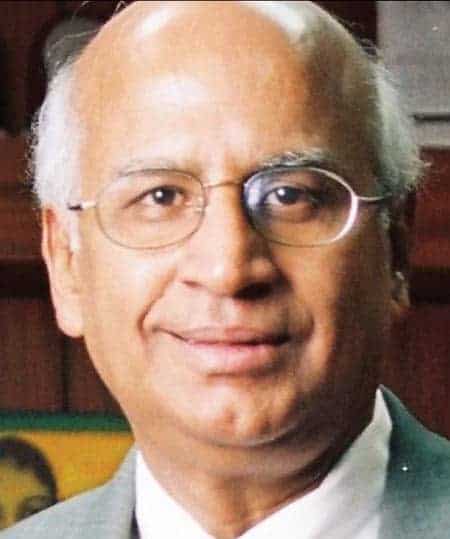Subramaniam Ramadorai is chief executive of Tata Consultancy Services (TCS), the largest software and information-technology company in Asia

Why did you choose to study physics?
I come from a traditional South Indian family, where the culture typically emphasizes science education. My upbringing reflected these same influences, and my father in particular had a great love for mathematics and physics. I remember going on long walks with him in the countryside, where he shared with me his unfulfilled dreams of becoming an engineer. He felt that he had a talent for engineering, but parental advice steered him towards studying mathematics instead. Perhaps I imbibed his passion, because I always loved fixing things and figuring how they worked through experimentation. All of these developed in me a growing interest in physics, and so my major at Delhi University was physics, with maths and chemistry as subsidiary subjects.
What did you do next?
After I graduated, I learned that the Indian Institute of Science (IISc) in Bangalore offered a Bachelor of Engineering degree in electronics and telecoms in three years, which meant that I could get two undergraduate degrees in a matter of six years. After studying both science and then technology, applied computer science was, to me, a natural progression. At that time the US was the top destination for someone keen to learn from the world’s best, so I went on to earn a Masters degree in computer science from the University of California. I was the first in my family to study abroad.
How did you become involved in TCS?
After I finished my Masters degree, I was at a crossroads in my life, weighing up a career in the US against the opportunity to join TCS. Back in the 1960s, an opportunity with Tata was considered better than a job in the US, and second best only to a job with the Indian government, which in those days was extremely prestigious. Still, it was a very difficult decision. In the end I opted for TCS, and I have never regretted it.
What do you see as the “next big thing” for the IT industry?
There is no single “next big thing” but I believe that innovation and R&D are going to be the big game-changers. The rapid growth of new technologies is making us question traditional models of doing business. There are many opportunities for IT in emerging growth areas such as energy, healthcare, life sciences and mobile technologies. Furthermore, all these developments are driven by intellectual property, which means investment in R&D.
How has your physics training helped you in your career?
Initially, it helped enormously in my understanding of the fundamentals of scientific thought. Later in my career, it helped me develop a healthy respect for R&D, and for the algorithm-based research so crucial for software development. The animation and visualization technologies we have now have helped me understand abstractions so much better; today, a Stephen Hawking book and the theories it propounds could well be translated into a fascinating film. I also believe that experimentation is akin to risk-taking. At TCS, we took several risks; we were the earliest IT services company in India, with no previous precedents or points of reference to learn from. It helped us become pioneers of Indian IT.
Do you have any advice for physics students interested in IT?
In my view, the combination of physics and mathematics is very powerful, because it provides you with a springboard to several avenues, including IT. Information technology is not the sole preserve of engineers. There are science, social-science and arts graduates who are helping shape the future of technology services on different continents, bringing their own special talents to this melting pot. At TCS we have tried to bring the IT growth story to science and maths graduates through a programme called Ignite, which aims to train them for the software industry. In a changing world, programmes such as Ignite will help ensure that an individual wishing to pursue a career in IT has a range of paths to choose from; Ignite provides a direct way, but there is also an R&D route and a technology route. Each of these are great entry points. Eventually, however, one’s ability to constantly learn and grow is the path to success.



